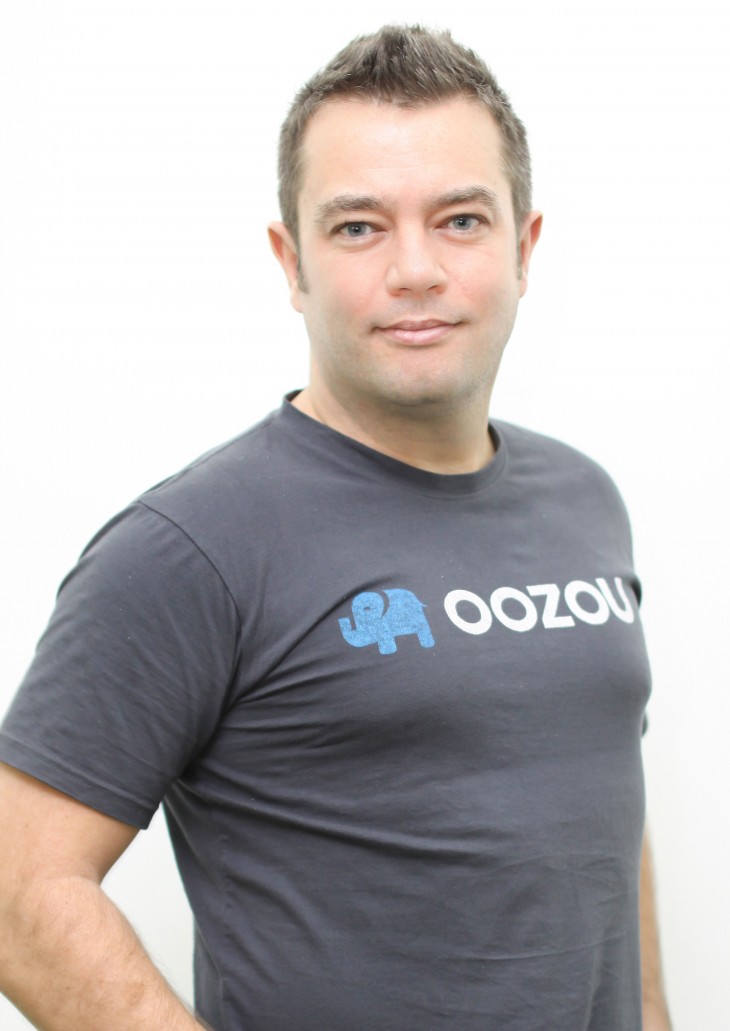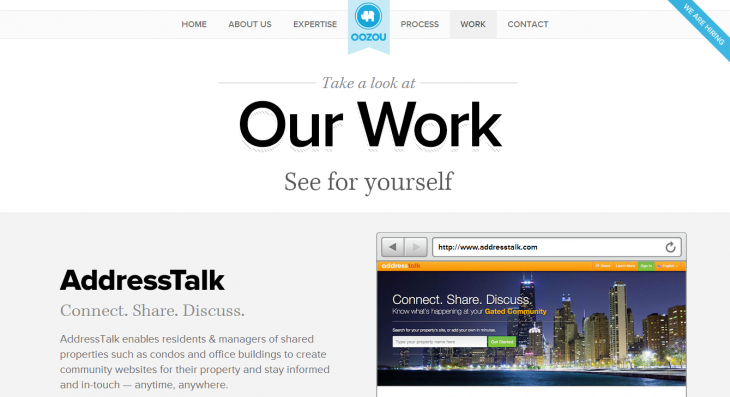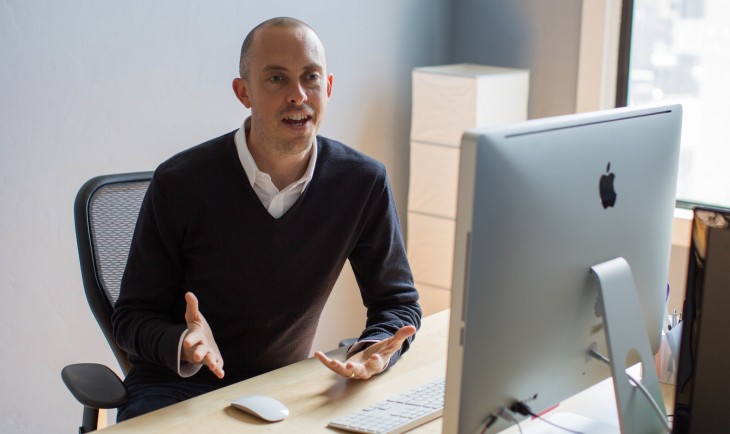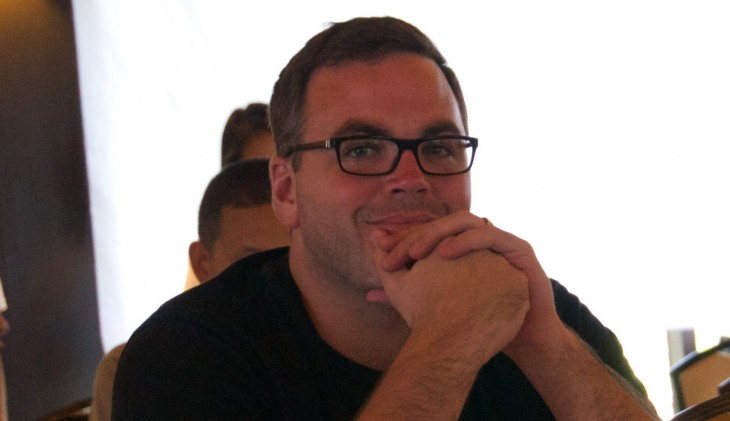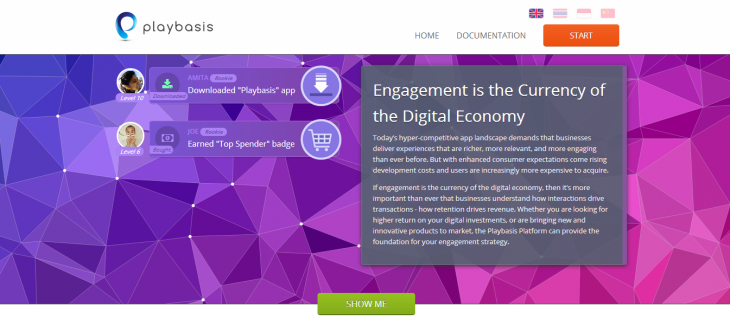
I was struck by a recent blog post from two US founders who explained that their startup would have died had they not moved it from San Francisco to St. Louis. The primary reason is that the new location is cheaper, they argue, but there are plenty of other benefits.
Their comments got me thinking. We haven’t seen many businesses swap the US for Asia, but if you want to start a global business and with a focus on lowering costs and having access to talent, then Asia is fast becoming a location that can cover both.
With that in mind, TNW reached out to a selection of Western founders who run businesses in Asia to find out more about the benefits and drawbacks to this part of the world.
Some of the responses were not as expected, but each founder has a unique business and opinion. Read on to find out more.
Headline image via Thinkstock
Jan Jones, founder of Oozou — Bangkok, Thailand
TNW: Basics: What does your company do? Where is it based? How long has it been going? How many staff do you have?
JJ: Oozou is a web and mobile app development studio based in Bangkok. We do full-stack design and development (Rails/Node/iOS/Android) for many US and European startups.
We have been going just about five years at this stage. We have 30 full-time in-house designers and developers (a mix of foreign and Thai) in Bangkok and are looking to expand with project offices globally.
TNW: What kind of customers do you have, and where are they (typically) based?
JJ: Typically, our clients are in the Bay area but we are seeing more and more in Southeast Asia (primarily Singapore) with the amazing startup growth happening in the region. Customers are usually early stage funded startups, though we also do work for a few big names including Twitter and 500 Startups.
We tend not to take bootstrapped startups because often they are too focused on the money and not enough on the product. In our early days we saw some startups use all their cash building products and then have nothing left for sales and marketing.
Funded startups generally have good advisors and the money to do things right.
TNW: Could you run this business in the US? If yes, what is so attractive about being based in Asia?
JJ: We could but the geo-arbitrage is what makes our business model work. Our Western customers get the same quality they would get Stateside but at considerably less cost. Quality is key though, we don’t compromise.
TNW: Have you experienced issues hiring locally? Do you also hire from overseas, and have you had issues bringing people over or selling the idea of leaving overseas?
JJ: While many of our staff are local we do employ a number of foreign staff (Russia, Austria, Germany, US and UK). Our Thai staff tend to be ‘Western’ style Thai’s, one of our primary criteria (as well as being an awesome designer or dev) is that English skills are very good. Communication is as important as amazing tech skill.
TNW: What are the main drawbacks of being based where you are?
JJ: Timezone is the killer. Over the years we have gathered an awesome set of tools and techniques to help us make communication with customers asynchronous which helps, but late night and early morning calls are inevitable.
TNW: Do you have plans to expand your presence, either in Asia, the US or elsewhere in the world?
Singapore and US (San Francisco) are on the cards.
TNW: What would you say to other founders who are considering moving their companies to Asia, or starting businesses over here?
JJ: Asia is a great place to start a company, but do your research. There are many cultural things to consider with staffing and many rules and regulations about things like business ownership, visas for foreign staff, work permit rules etc.
Find yourself a good advisory company that has the local knowledge and can be trusted to help set things up.
Robert Laing, co-founder of Gengo — Tokyo, Japan
TNW: Basics: What does your company do? Where is it based? How long has it been going? How many staff do you have?
RL: Gengo is a people-powered translation platform and API. We help customers like Rakuten, TripAdvisor, Alibaba and thousands of smaller users go global, ordering translations in over 35 languages through our platform, which are completed by over 11,000 translators around the world.
We started Gengo in 2009, in Tokyo. The word “Gengo” means “language” in Japanese, and we’ve always been a mixture of Silicon Valley culture with a Japanese influence. My co-founder is half Japanese and I’m British/Australian. We now have 50 staff worldwide, two-thirds of whom are in Tokyo with the remainder in the San Francisco Bay Area.
TNW: What kind of customers do you have, and where are they (typically) based?
RL: We have large enterprise customers like Rakuten, TripAdvisor and Mozilla, plus dozens of channel partners like YouTube and Fliplingo who resell our translation to their users. And then thousands of small-business customers. These customers either use our API, or our website. The majority of our customers are based in Japan and the US, but we have customers everywhere. In fact, we have translators based in almost every country of the world.
TNW: Could you run this business in the US? If yes, what is so attractive about being based in Asia?
RL: We can and do have a sales team in the US. But we started in Japan and that’s where two thirds of the company is based.
But for us it’s more of a cultural thing. It’s impossible to hire anyone in Japan who doesn’t intrinsically “get” the language barrier, whether they are native Japanese or a foreigner. That doesn’t happen in the US. Additionally, we’ve now built up a great engineering team here in Tokyo that would be more expensive and harder to retain in Silicon Valley. Gengo is a real blend of Silicon Valley startup attitude and Japanese perspective.
Additionally, we see the non-English internet and growth of non-US e-commerce platforms as really key to our success. So we have customers in Asia now and we expect a lot more in the next five years.
TNW: Have you experienced issues hiring locally? Do you also hire from overseas, and have you had issues bringing people over or selling the idea of leaving overseas?
RL: At the beginning it was extremely hard to hire locally. Culturally startups aren’t seen as very ‘respectable’ in Japan, although this is improving. So we had a hard time attracting Japanese natives. But now we have a bigger team, more respectability (appearing in the national press and having investors like NTT Docomo really helps) so we have a good ratio of Japanese natives and foreigners. I’m really confident we can continue to grow in that fashion.
We have some great Gengons who we’ve brought over from the US, the UK, even as far as South Africa. It’s tricky, because they have to both love Gengo and love Japan. When that works it’s a killer combination. When it doesn’t, it’s tricky because people are unhappy in a foreign land. So I’d advise others to be careful and come up with ways to allow prospective hires to “try out” your country before making (and paying for) a permanent move.
TNW: What are the main drawbacks of being based where you are?
 RL: In the past it was very difficult to raise money in Japan. That’s now changing, which is great, but we have often been one of just a few companies raising venture capital in Japan. I’m really encouraged to see government entities like INCJ putting money into venture funds so that the situation improves.
RL: In the past it was very difficult to raise money in Japan. That’s now changing, which is great, but we have often been one of just a few companies raising venture capital in Japan. I’m really encouraged to see government entities like INCJ putting money into venture funds so that the situation improves.
It’s hard to find staff who know about startups. People who apply to join Gengo are self-selecting (they love startups) but it would be great if there were more people who just were more familiar with Silicon Valley culture.
Hiring here is just different. It’s lower cost than Silicon Valley, and we are glad we don’t have to have a yoga class, unlimited sushi and a butler to compete with the startup next door. But obviously Silicon Valley has thousands of super-educated people who flock to the region because they love startups. Tokyo has some of those people but obviously fewer, so we have to grab them and be alert.
TNW: Do you have plans to expand your presence, either in Asia, the US or elsewhere in the world?
RL: Yes. Our US and Japan teams are expanding but we also have a significant customer base in Europe, so we’ll be adding team members there. Probably London. We’re confident we can do that, having opened our US office successfully two years ago. Long-term, we will have more expansion in Asia too. Gengo wants the world to communicate freely, so the world is our oyster.
TNW: What would you say to other founders who are considering moving their companies to Asia, or starting businesses over here?
RL: You need an explicit reason to be wherever you are — whether that’s Silicon Valley or Asia or Iceland. Moving just because it may be cheaper is absolutely not enough. You have to love where you live, and you have to have a reason key to your business that makes it worthwhile in the long term. If you have that in place, Asia is becoming a fantastic place to build a company, with the funding to match.
Stephen Jagger, co-founder of PayrollHero — Whistler, Canada / Manila, Philippines
TNW: Basics: What does your company do? Where is it based? How long has it been going? How many staff do you have?
SJ: PayrollHero is a time, attendance, scheduling, HRIS, analytics and payroll platform built for Southeast Asia. We are focused on optimizing working productivity through happiness.
We are a two-year-old startup with an international team of 17, and offices in Manila, Philippines and Whistler, Canada.
TNW: What kind of customers do you have, and where are they (typically) based?
SJ: We are focused on restaurants, retail and the BPO/office industry in Southeast Asia. We call PF Changs, iHOP, The Coffee Bean and Tea Leaf, The Picture Company, Candy Corner, Tate Publishing and many others clients.
TNW: Could you run this business in the US? If yes, what is so attractive about being based in Asia?
SJ: Yes, we could have our team working from the US, developing the platform, etc. In fact, we have an office in Whistler, Canada for just this reason. We struggled to hire engineering in the Philippines and decided to take a different approach.
We switched gears and decided to create our Adventure Engineering program, set up shop in Whistler and work to attract talent there, using the mountains, flexible schedules and adventure as our hook. We could have chosen Vancouver, but wanted to differentiate ourselves from the companies coming there as we did not want to compete solely on wages.
Yes, our platform could work in North America and we do have some clients there, but our focus is on Southeast Asia. We like emerging markets and the opportunity they offer.
Most companies in Southeast Asia are just coming into the computing, smartphone, cloud software revolution. For us, it is an educational sale of why the cloud is better than traditional software. Or how putting in systems makes financial sense.
TNW: Have you experienced issues hiring locally? Do you also hire from overseas, and have you had issues bringing people over or selling the idea of leaving overseas?
SJ: See details of our Adventure Engineering program.
TNW: What are the main drawbacks of being based where you are?
SJ: Southeast Asia has some unique factors. Culture, language, corruption, currencies all make for a challenge, but with this comes amazing opportunities too.
TNW: Do you have plans to expand your presence, either in Asia, the US or elsewhere in the world?
SJ: Yes, we are focused on Southeast Asia and expanding our presence here. We have customers in more than 10 countries and will continue to expand our presence in the region.
TNW: What would you say to other founders who are considering moving their companies to Asia, or starting businesses over here?
SJ: The opportunity in Southeast Asia is massive. Companies are growing fast, the markets are hot and they are willing to adopt technology. Best place to start is by jumping on a plane and coming to check it out for yourself. We made a video a little while ago on “Why to start a business in the Philippines”.
Rob Zepeda, founder of Playbasis — Bangkok, Thailand
TNW: Basics: What does your company do? Where is it based? How long has it been going? How many staff do you have?
 RZ: Playbasis provides gamification-as-a-service. That’s to say we offer developers the ability to tap in to an API and enhance/extend their apps with dozens of features designed to improve user engagement; points, badges, leaderboards, notifications, missions/challenges, virtual credits, item shops, in-app analytics and social login.
RZ: Playbasis provides gamification-as-a-service. That’s to say we offer developers the ability to tap in to an API and enhance/extend their apps with dozens of features designed to improve user engagement; points, badges, leaderboards, notifications, missions/challenges, virtual credits, item shops, in-app analytics and social login.
These are just some of the capabilities we deliver through an easy-to-integrate API.
Due to the ease of business and startup-friendly environment, Playbasis was incorporated in Singapore in December of 2012.
Singapore is a fantastic springboard to greater Asia; it’s a very stable, developed economy that gives startups lots of great incentives to incorporate on the tiny island. It also has strong intellectual property laws, lots of available capital, and everyone speaks English, which is great for internationals.
However, Playbasis operates out of our Bangkok, Thailand-based subsidiary. I personally call Bangkok home, and feel it offers an unbeatable quality of life. Most things are relatively inexpensive, which is fantastic for lean startups like Playbasis — 11 of our 12 team members are based here and we will likely continue to do the bulk of our product and business development from here.
TNW: What kind of customers do you have, and where are they (typically) based?
RZ: So far all of our customers have been big corporates based here in Thailand. We currently count several of Thailand’s largest banks, telcos, and retailers as customers. Singapore and Malaysia are developing roo, and we’ll be able to announce some major new customers from those markets soon.
Our target market has always been Asia since this is clearly where all the growth is going to come from. But we soon plan to market some of our products internationally since we are getting such strong market demand.
TNW: Could you run this business in the US? If yes, what is so attractive about being based in Asia?
RZ: There are several successful gamification platform companies already in the US, but what makes Asia so interesting in particular are the consumers. Asian consumers are hyper social, hyper mobile, very gaming-centric, a young demographic, and very willing to try something new. These are fantastic conditions for a startup like Playbasis, as the concept of gamification is overwhelmingly embraced here by consumers.
Factor in the strong growth in smartphone penetration and the desire for localized products and services, and it’s clear this is the best place for us to be.
There are many US-based companies who seem to accidentally find massive success in Asia, and there are other companies who are successful in the West but have trouble cracking Eastern markets. In both cases, you could significantly increase their success of a product if it were tailored to local audiences. And conversely, we are seeing many typically Asian features and innovations find their way into Western products (stickers, virtual currencies). It’s been interesting to observe.
TNW: Have you experienced issues hiring locally? Do you also hire from overseas, and have you had issues bringing people over or selling the idea of leaving overseas?
RZ: There was a time when high potential graduates would by default choose to work for the biggest, highest profile companies. Or they might work for the family business. But times are changing and startups are now very alluring, provided they have reached some level of traction. It’s still hard to attract your first few employees, and people are certainty largely motivated by attractive compensation and less so by equity (a challenge for lean startups). But in general people want to work on something cool. And since most people in the startup scene here are relatively young with fewer attachments, they can afford to be more risk tolerant than their older, more established colleagues.
Overseas talent is definitely arriving to Asia in droves, and it’s having a great effect on the overall ecosystem. In places like Europe, where the economy is struggling and opportunities are drying up, we are seeing a significant migration of young talent looking for opportunities in Asia. The majority of our team is Thai, but we do have some Europeans on our team. As for myself, I’m originally from California.
TNW: What are the main drawbacks of being based where you are?
RZ: There are certainly some challenges being based in Thailand. Political instability is one, but by and large the western media overdramatizes such situations. Language can be a barrier but English is still pretty widely used in the business and startup communities. Certain industries are regulated and are essentially off-limits to foreign entrepreneurs.
Credit card penetration is still low in some markets, and not everyone pairs a 3G or 4G data plan with their smartphone. But all of these challenges are certainly manageable, and conditions improve every year.
TNW: Do you have plans to expand your presence, either in Asia, the US or elsewhere in the world?
RZ: Our focus is Asia Pacific and this is really a big market, even if you exclude China and India. I don’t see us making a big push into Europe or the US but that could change. Tokyo, Seoul, Hong Kong, Sydney all make sense considering our enterprise customers tend to be large multinational, global 2000 types. As for our upcoming developer platform, it will be available globally.
TNW: What would you say to other founders who are considering moving their companies to Asia, or starting businesses over here?
I’m not sure this advice applies to every startup, but for consumer-facing mobile-first startups, Asia is probably the most important region globally and it’s critical that you understand consumer behavior and cultural nuances here if you want to be successful.
I moved to Asia four years ago precisely for this reason and it was the best decision I’ve ever made. The Asian market is a volume market and while average revenue per user is lower, user acquisition costs tend to be lower as well (save for the most developed countries). As a result profit margins can be much higher if you can figure out how to successfully monetize your service.
A place like Thailand is a very cost-effective place to do a startup and acquire your initial user base. To monetize these users, you have to embrace the freemium model, seek partnerships and sponsorships, and do things like elegantly incorporating virtual currencies and virtual goods. These techniques might not seem obvious to founders from the US and Europe, but they are absolutely critical to success in Asia.
Study the playbook of the games and social apps that are popular in this part of the world, and try to see what mechanics you can borrow and incorporate into your own apps. In many ways, this is the idea from which Playbasis was born. Other than that, I wish all founders good luck!
Get the TNW newsletter
Get the most important tech news in your inbox each week.

